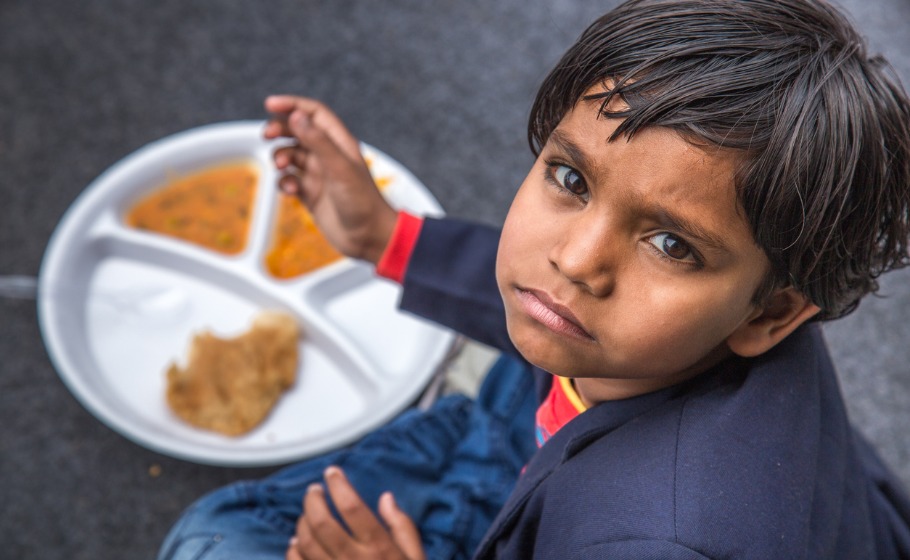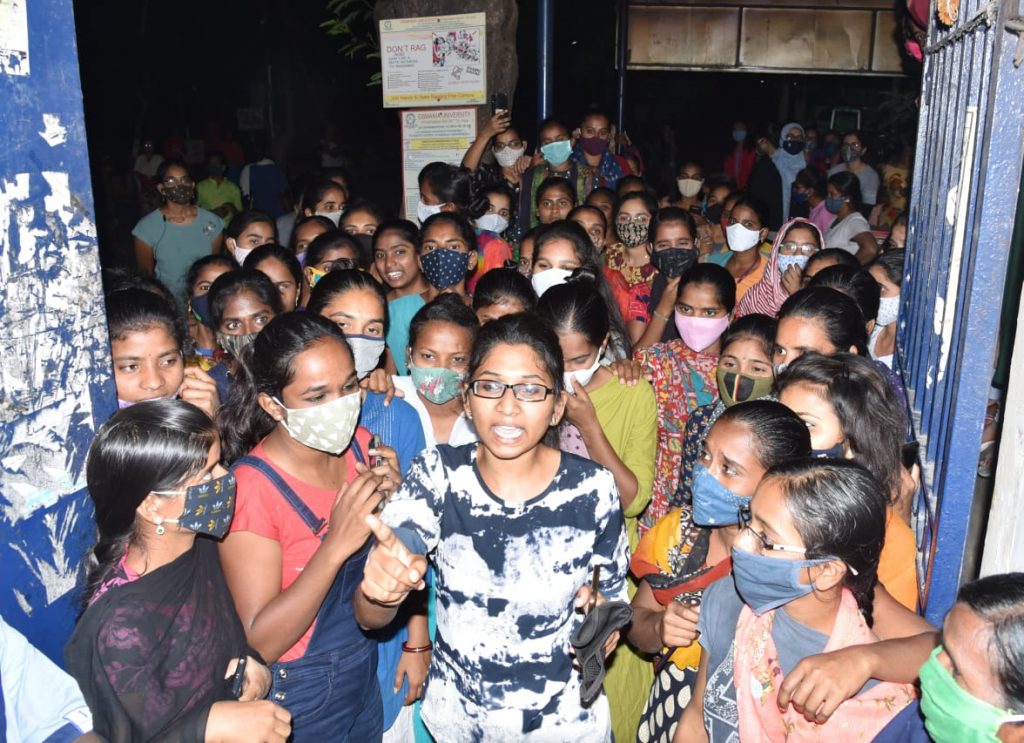
Sudden closure of schools in Telangana leaves the poor high and dry
The sudden closure of educational institutions in Telangana has left lakhs of students in government schools in crisis. While those staying in residential schools were given a day's notice to vacate, students in regular schools were deprived of their midday meals from the same day of closure on March 24.

The sudden closure of educational institutions in Telangana has left lakhs of students in government schools in crisis. While those staying in residential schools were given a day’s notice to vacate, students in regular schools were deprived of their midday meals from the same day of closure on March 24.
The closure was broadly welcomed by the parents of private schools’ students, but it came as a shock to those sending their children to state-run schools.
“I send my two children to the basti (slum) school before going to work. They get midday meal in school. One of my masters given me lunch. Coronavirus impacted this system as schools were shut for many months. We struggled to manage as the virus took a toll on my work too,” said Shobha, a resident at Hyderabad’s biggest slum Addagutta in Secunderabad.
“I had just heaved a sigh of relief since I resumed work in all my old places and the children (class VI and VII) too started going to school last month. Now, the government suddenly closed the school again. The struggle begins for me again,” rued Shobha, whose family generally skips breakfast and only supper is what she has to manage.
Things no more seem to be smooth for her.
“I don’t know if the children will drop out of school. I have to go to work and there is no one to take care of the kids at home. I should prepare their lunch before going to work,” she said with a blank face.
Shobha is the member of the Mothers’ Association for Quality Education, a unique initiative launched by the MV Foundation, an NGO that works for child rights with ‘No child can stay outside school’ as a non-negotiable principle.
“We’re getting calls from the orphan girls staying in our Balika Vikas Kendras (BVKs) during the summer and long vacations. The girls are asking us to pick them up. Our volunteers are having a tough time reaching those children,” said MV Foundation’s national coordinator, R Venkat Reddy.
A residential school principal told The Federal that the government had instructed the hostels not to draw the ration quota for April.
An interaction with a cross-section of students revealed their fears of being forced to assist their parents in farm and domestic work. “At home, we can’t expect the academic atmosphere that is available in hostel. When everyone goes to bed, we too should. When parents assign us some work, we have to complete it, setting aside our studies,” said many of the students when recalling their experiences during the last spell of the prolonged vacation.
Related news | Telangana puts up brave face amid surge in COVID cases, opens lower classes
Instead of taking the decision in a hurry and pushing for its instant implementation, the government should have given advance notice to enable the parents and children make suitable arrangements, argues Students Federation of India (SFI) Telangana unit general secretary T Nagaraju.
Venkat Reddy adds, “For these children, school is not just a learning place. Their one time meal is taken care of by the government and this is a very essential part considering their poverty”.

Even the students at Osmania University and several of its affiliate colleges were agitating against the closure of the hostels. “They asked us to leave by this (Thursday) noon. Where should we go?” asked the peeved students of the Women’s College.
The government said that online classes would resume to keep the academic activity going. Teachers have been instructed to come to schools regularly.
“The quality of education suffers in the online system. Children also miss the environment where they study, play, and do a lot of recreation,” says Vasireddy Amarnath, an academician owning a chain of schools. He staunchly opposes the closure of schools.
The government boasts of an increase in the quality of education so greatly in the last six years that 189 students from the welfare residential schools got admissions in medical courses, prompting the Harvard University to study the education system in social welfare residential schools. As many as 170 SC and ST students got admission in IIT and JEE.
There are 4.3 lakh students in 970 residential schools meant for BC, SC, ST, and minority sections. The government claims to be spending ₹1 lakh on each student in these welfare residential schools.
Related news | Private school managements slam 30% slash in tuition fees; mull legal action
Meanwhile, child rights activists are worried about the scope of students dropping out and that they could be engaged in work. “We struggled a lot to bring them to schools,” said Vijaya, an activist from Balapur in the city.
The Mothers Association is opposing the complete closure of schools. “Bars, pubs, cinema theatres and malls are open, but the government is keen on closing schools. There are protocols for preventing the spread of the infection,” said the association in a resolution adopted opposing the closure. They are now gearing up to petition the local authorities to run the schools and provide midday meal to the students.
The SFI demanded that the schools must be run regularly and the students be provided immunity-boosting food. “Students in villages, where there are no proper facilities, go to school for midday meal, as their parents go to work. Without preparation, the government imposed the decision on such hapless people,” said SFI’s Nagaraju.
The SFI also has an alternative proposal that nutritious, immune-rich food be supplied to students at home.


